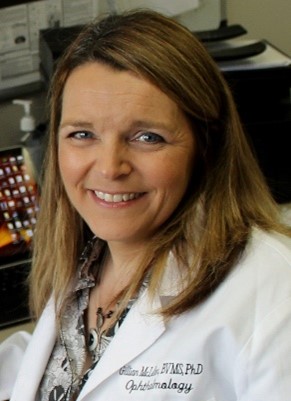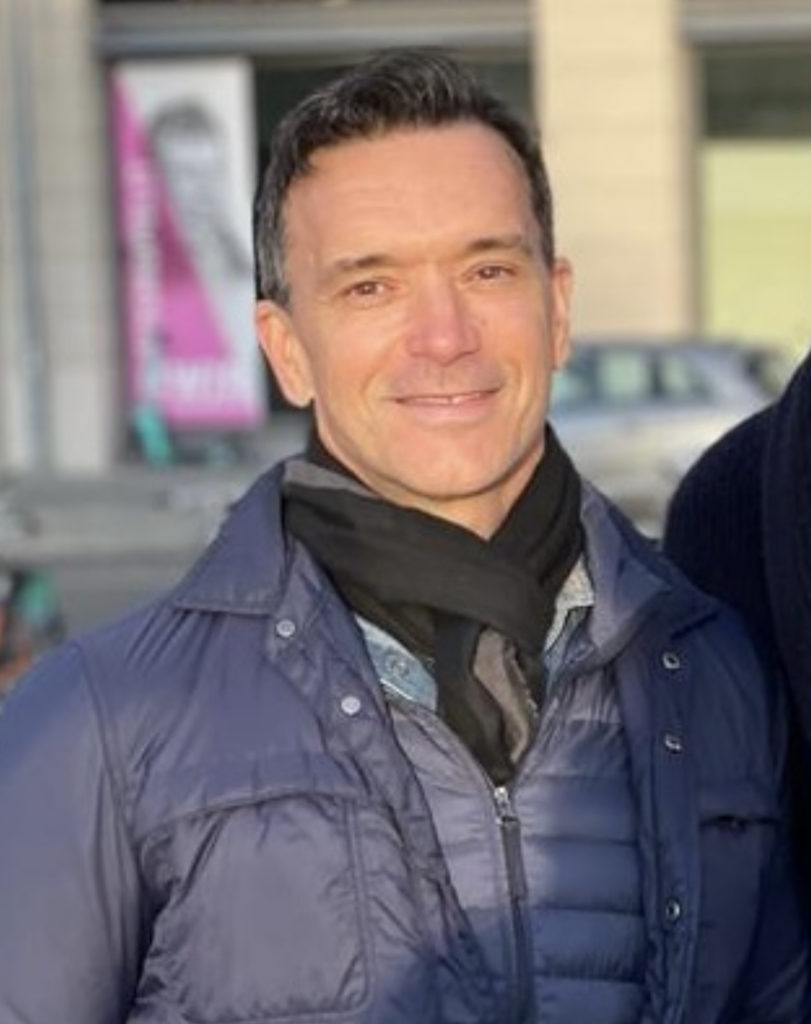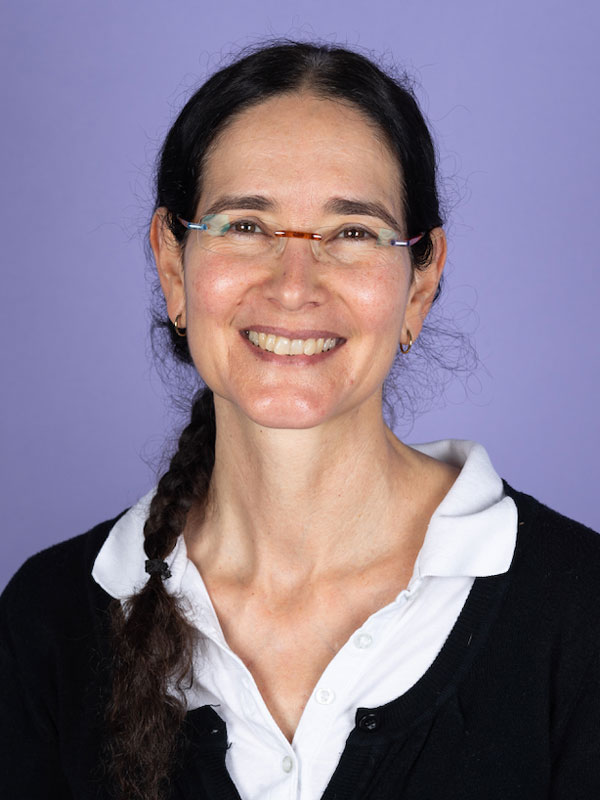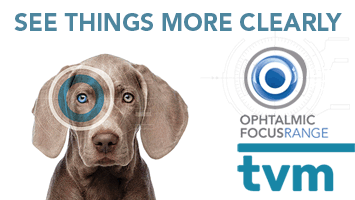Speakers

András M. Komáromy
DrMedVet, PhD, DACVO, DECVO
Professor of Comparative Ophthalmology
College of Veterinary Medicine
Michigan State, University, MI, USA
Dr. András Komáromy is a Professor of Comparative Ophthalmology at the Michigan State University (MSU). He received his veterinary degree from the University of Zurich (Switzerland). Following his internship in medicine and surgery at MSU, he performed his PhD graduate work and clinical residency at the University of Florida. Dr. Komáromy is a Diplomate of both the American and European Colleges of Veterinary Ophthalmologists (ACVO and ECVO) and a Fellow of the Association for Research in Vision and Ophthalmology (ARVO). He was President of the ACVO and is the current Editor-in-Chief of Veterinary Ophthalmology. As a clinician-scientist, he is particularly interested in studying glaucoma and retinal diseases in dogs. Dr. Komáromy authored over 100 clinical and scientific publications and book chapters and is a member of a United States National Institutes of Health (NIH) study section. He received numerous awards for his work, including the Shaffer Prize for Innovative Science (Glaucoma Research Foundation), the Carl Camras Translational Research Award (Association for Research in Vision and Ophthalmology ARVO Foundation/Pfizer Ophthalmics), the Zoetis Award for Veterinary Research Excellence, and the MSU Undergraduate Research Faculty Mentor of the Year Award.

Deborah Keys
PhD
Founder and biostatistical consultant
Kaleidoscope Statistics LLC, Athens GA, USA
Deborah Keys holds a PhD in Biomathematics from the Statistics Department at North Carolina State University. Biomathematics is an interdisciplinary graduate program requiring significant coursework in statistics, math, and biology. Post-graduation, Deborah worked for four years in the private sector, first as a biostatistician in agrochemical, then in contact lens industries, followed by two years as a research associate in Environmental Health at the University of Georgia (UGA). Since 2005, Deborah has served as an independent statistical consultant at the UGA College of Veterinary Medicine in Athens, GA and she is now the owner of Kaleidoscope Statistics which focuses exclusively on providing excellent statistical support for veterinary medical research. She currently works with a variety of veterinary medical researchers, including residents and clinicians in other academic institutions, corporate and privately owned veterinary practices, and contract research organizations. She has authored or co-authored over 40 scientific articles in peer-reviewed journals, the majority of which are veterinary medical including veterinary ophthalmology journals.

Ellison Bentley
DVM, DACVO
Clinical Professor of Comparative Ophthalmology
School of Veterinary Medicine, University of Wisconsin, Madison, WI, USA
Ellison Bentley graduated from University of Florida in 1993 and completed a small animal internship at North Carolina State University in 1994. In 1997, she did a residency in comparative ophthalmology at the University of Wisconsin-Madison, and subsequently joined the faculty there in 2001. She is currently a Clinical Professor and section head of Comparative Ophthalmology at UW. She is involved in student, resident and graduate veterinarian training locally, nationally and internationally. Her research interests include ocular applications of high-resolution ultrasound, glaucoma, management of ocular pain, and non-healing erosions in dogs.

Gill McLellan
BVMS, MRCVS, PhD, DACVO, DECVO, FARVO
Professor of Comparative Ophthalmology
School of Veterinary Medicine, University of Wisconsin, Madison, WI, USA
Gill McLellan is a veterinary clinician-scientist who was awarded a veterinary degree at the University of Glasgow; then completed a PhD at University College London, and residency training in comparative ophthalmology at the Royal Veterinary College in the UK. Gill is a board-certified as a veterinary ophthalmologist in both Europe and the US and is a former President of the European College of Veterinary Ophthalmologists. She currently holds a joint faculty position as a Professor with tenure in both the School of Medicine and Public Health, where her NIH funded lab is based, and the School of Veterinary Medicine, where she is the Chair of Surgical Sciences and holds the Tim and Nancy Speaker Chair in Canine Health, at the University of Wisconsin-Madison. She is committed to the ethical treatment of animals and efforts to apply “the 3 Rs“ in veterinary clinical and basic research and recently served as the Chair of the Association for Research in Vision and Ophthalmology (ARVO) Animals in Research Committee. Her own research interests are in comparative glaucoma, Alzheimer’s disease and diseases of the optic nerve, retina and brain in dogs, cats …and people!

Lauren Trepanier
DVM, PhD, DACVIM, DACVCP
Professor of Internal Medicine
Assistant Dean for Clinical and Translational Research
School of Veterinary Medicine, University of Wisconsin, Madison, WI, USA
Dr. Trepanier has 25 years of experience at the University of Wisconsin-Madison training residents, interns, and students and conducting research on therapeutics, adverse drug reactions and environmental cancers. She earned her DVM with distinction from Cornell University, completed residency training at the Animal Medical Center in New York, and obtained a PhD in Pharmacology, also at Cornell. Dr. Trepanier is board certified in both Internal Medicine and Veterinary Clinical Pharmacology and is currently a Professor of Internal Medicine. More recently, Dr. Trepanier has devoted time to initiatives that engage veterinarians in research, as Assistant Dean for Clinical and Translational Research at the UW-Madison School of Veterinary Medicine, and as Chair of Clinician Scientist Education for the CTSA One Health Alliance.

Malwina Ewa Kowalska
DVM, PhD in Epidemiology and Biostatistics
Postdoctoral researcher, Section of VetEpi and Veterinary Ophthalmology,
Vetsuisse Faculty, University of Zurich, Switzerland
Malwina Kowalska graduated from the University of Life Sciences in Warsaw in 2015. She completed a rotating internship in Eastcott Referrals, UK, and later an ophthalmology internship at the Animal Health Trust, UK. In 2022 she finished her PhD in Epidemiology and Biostatistics at the University of Zurich, with a particular interest in PACK-CXL, clinical studies design, and means to address the reproducibility crisis in science. As a post-doctoral researcher, she is working on developing the One Health Infrastructure- harmonizing different health data types and sources in a platform that will allow transparent, secure, and collaborative health research in humans and animals in Switzerland. Malwina co-founded planitipolis, a university spin-off providing nature-based solutions for urban green spaces. The company focuses on and researches the use of biodiversity for a city’s climate moderation and biodiversity connectivity to human health.

Rick F Sanchez
BSciBiol, DVM, DipECVO, CertVetEd/FHEA
Rick Sanchez pursued his education in the US and the UK with a BSciBiol (STAC, NY, US, 1994), a DVM after attending Ross and Louisiana State Universities (1999), an EU veterinary qualification (Autonomous University, BCN, Spain, 2001), and he completed his ophthalmology residency through University of Glasgow and the Eye Veterinary Clinic (UK, 2005). He obtained his DipECVO (2007) and headed an ophthalmology service in private practice (NKR, Kent, UK) until late 2011 when he joined the Royal Veterinary College (RVC) (London, UK). There, he established and directed the Ophthalmology Service and an ECVO Ophthalmology Residency Program and became Fellow of the Higher Education Academy (FHEA) for Veterinary Teaching (2014). He returned to private practice in 2017 (Specialistische Dierenkliniek Utrecht (SDU)-Anicura, NL), where he established an ECVO Residency Program. Rick is the director of various ophthalmology courses around the world. He is an Editorial Board Member of Veterinary Ophthalmology since 2010 and Associate Editor since 2022, and Senior Editorial Board Member of BMC Veterinary Research in Ophthalmology since 2018. Rick’s interests include corneal biology as well as corneal and cataract surgery. Rick’s Google Scholar profile has a current list of his publications.

Sven Schnichels
PhD, M. Sc.
Group Leader “Neuroprotection and Drug Delivery Lab” at the Institute for Ophthalmic Research, Tübingen, Germany
Laboratory Head University Eye Hospital, Tübingen, Germany
Dr. Sven Schnichels graduated from the University of Hohenheim, Germany in 2005 and completed an internship at the University of Würzburg, Germany in 2005. From 2006 – 2010, he joined the Eberhard Karls University in Tübingen, Germany for his Ph.D., which he conducted at the University Eye Hospital. After an internship at the Berlin-Brandenburg Center for Regenerative Therapies, Charité, in Berlin 2010, he continued his Post-Doc at the University Eye Hospital in Tübingen and became the Laboratory Head of the Eye Hospital in 2013. Since 2016, he is also the head of the Neuroprotection and Drug Delivery Lab at the Institute for Ophthalmic Research, Tübingen, Germany. In addition, he is a member of the board of the German Ophthalmological Society (DOG). Furthermore, he is one of the spokespersons of the YoungDOG, representing the young members of the DOG. He is also an appointed member of the European Leadership Development Program of the European Society of Ophthalmology. His research interests include innovative drug-delivery systems for ocular delivery and testing of neuroprotective agents for retinal diseases. In addition, to create more realistic models for human ocular diseases and to implement the 3R principles, he started in 2010 to develop several ex vivo and in vitro cornea, retina and spheroid models. The ocular diseases in these models are induced by hypoxic, oxidative, angiogenic and glutamate stress via different conditions thereby simulating conditions including central retinal artery occlusion, glaucoma, age-related macular degeneration and diabetic macular edema. In 2021, he was invited to write an extensive review on “retina models in a dish” in Progress in Retinal Eye Research.

Yael Shilo-Benjamini
DVM, DACVAA
Senior Clinical Lecturer in veterinary anesthesia & analgesia
Koret School of Veterinary Medicine
The Hebrew University of Jerusalem, Israel
Dr. Yael Shilo-Benjamini graduated from Koret School of Veterinary Medicine, The Hebrew University of Jerusalem. In 2010 she completed an anesthesia and pain management residency at the University of California Davis and became a diplomate of the American College of Veterinary Anesthesia and Analgesia. Currently, she is a Senior Clinical Lecturer of Anesthesia and Analgesia at Koret School of Veterinary Medicine. She has a particular research interest in pain management, focusing on the use of local and regional anesthetic techniques in veterinary medicine.
Important dates
December 1, 2022
Opening abstract submission
January 17, 2023
Opening registration
February 23, 2023
March 5, 2023
Deadline abstract submission
End of March, 2023
Acceptance of submission
April 10, 2023
Deadline early bird registration
May 18-21, 2023
ECVO Conference 2023
Important dates
May 18-21, 2023
ECVO Conference 2023


